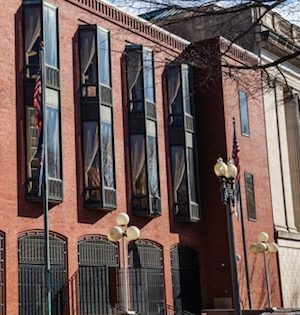CAFC Affirms Preliminary Injunction Against RaDaR Cancer Assay in Precedential Decision
“The CAFC found that NeoGenomics was incorrect in arguing that the mere vulnerability of the patent’s validity defeated injunctive relief.”
On July 12, the U.S. Court of Appeals for the Federal Circuit issued a precedential opinion in Natera, Inc. v. NeoGenomics Laboratories, Inc. affirming a grant of preliminary injunction that prevents NeoGenomics from making or selling its RaDaR oncology testing assay. The Federal Circuit’s opinion, authored by Chief Judge Kimberly Moore, found no legal error in the district court conducting an infringement analysis without claim construction, and no clear error in finding that NeoGenomics failed to raise a substantial question of patent validity.
Cell-free DNA (cfDNA) test developer Natera, which markets its Signatera cancer diagnostic product in competition against RaDaR, filed an infringement suit against NeoGenomics in the Middle District of North Carolina. Natera’s lawsuit asserted a pair of patents covering methods for amplifying targeted cfDNA and detecting variations in cfDNA indicating disease recurrence. The Middle North Carolina district court entered a preliminary injunction after finding Natera proved a likelihood of success on the merits of its infringement argument with respect to one patent, although NeoGenomics obtained a modification carving out exceptions for certain research contracts and testing patient samples collected prior to the injunction.
District Court Has No Obligation to Construe Claim Terms at Preliminary Injunction Stage
On appeal to the Federal Circuit, NeoGenomics challenged the district court’s findings on each of the injunctive relief factors. As to the likelihood of success of Natera’s infringement argument, NeoGenomics argued that the district court failed to resolve a key dispute on claim construction. The Federal Circuit ruled that the district court has no obligation to construe claim terms at the preliminary injunction phase, and that NeoGenomics only raised this dispute on a motion to stay the injunction. Further, the district court properly found that RaDaR’s polymerase chain reaction (PCR) process practiced both the claimed tagging and amplification steps, differentiating the present case from Amgen v. Sandoz (2019) in which the Federal Circuit found that a single-step process did not practice multiple discrete steps of a patent claim.
Regarding NeoGenomics’ obviousness challenge to Natera’s patent, the Federal Circuit found that NeoGenomics was incorrect in arguing that the mere vulnerability of the patent’s validity defeated injunctive relief. NeoGenomics’ obviousness argument at the district court consisted of four paragraphs of conclusory arguments without meaningful supporting documentation. By contrast, the Federal Circuit noted that Natera offered significant evidence of obstacles preventing a skilled artisan from properly amplifying and sequencing cfDNA, particularly in the claimed cancer context.
The Federal Circuit also nixed NeoGenomics’ challenges to the district court’s findings on irreparable harm suffered by Natera. NeoGenomics had argued that the district court misinterpreted the Federal Circuit’s 2012 holding in Presidio Components v. American Technical Ceramics to impose a categorical rule that direct competition with an alleged infringer creates irreparable harm. The appellate court, however, found that the district court also found other supporting factors, including Natera’s unwillingness to license its patent and difficulties faced by patients switching between cancer diagnostic tests.
Testimony on RaDaR’s Superior Sensitivity Unsupported by Clinical Data
The district court’s irreparable harm finding also survived NeoGenomics’ argument that the causal nexus for the alleged harm was tied to an unclaimed feature, here the tumor-informed testing feature of the RaDaR assay. The Federal Circuit ruled that Natera presented sufficient evidence that RaDaR’s highly sensitive tumor-informed testing, which drove product demand, could not be achieved without practicing the claimed methods. NeoGenomics also lost on its argument that Natera unreasonably delayed its infringement suit after the Federal Circuit found that the district court properly credited Natera’s separate litigation of related patents and that the suit was timely brought within four months of RaDaR’s commercial availability.
Finally, the Federal Circuit found no error with the district court’s public interest analysis. While NeoGenomics argued that no cancer test can replace RaDaR’s high sensitivity, Natera had properly controverted this conclusion by presenting evidence that RaDaR and Signatera are approved for the same cancer indications. Natera also showed that NeoGenomics’ expert testimony on RaDaR’s higher sensitivity was unsupported by clinical data, and that available data established that both products had comparable clinical utility.
Without record evidence supporting RaDaR’s superior sensitivity, the Federal Circuit found that the logical extent of NeoGenomics’ argument would preclude any injunction for medical or healthcare products based on patient choice. The Federal Circuit noted that the district court clarified the injunction to address potential adverse effects on patients and research. While NeoGenomics offered a letter of supporting authorities under Federal Rule of Appellate Procedure 28(j) in early June noting that Medicare coverage was approved for a new indication for RaDaR, the Federal Circuit ruled that this public harm factor should be addressed by modification of the injunction at the district court.
Steve Brachmann
Steve Brachmann is a graduate of the University at Buffalo School of Law, having earned his Juris Doctor in May 2022 and served as the President of the Intellectual Property […see more]





![[Webinar] 2023 Design Patents Year in Review: Analysis and Trends – January 30th, 1:00 pm – 2:00 pm EST | Sterne, Kessler, Goldstein & Fox P.L.L.C. [Webinar] 2023 Design Patents Year in Review: Analysis and Trends – January 30th, 1:00 pm – 2:00 pm EST | Sterne, Kessler, Goldstein & Fox P.L.L.C.](https://jdsupra-static.s3.amazonaws.com/profile-images/og.14437_5906.jpg)

